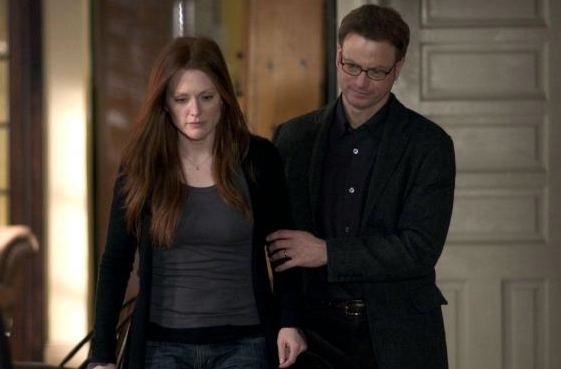Destruction Of The Papal Signet Ring: Tradition And The Case Of Pope Francis

Table of Contents
The Historical Significance of the Papal Signet Ring
The Papal Signet Ring, a symbol of papal authority for centuries, holds immense historical significance. Its origins trace back to the early papacy, evolving from a simple seal to an elaborate emblem signifying the power and authority of the Bishop of Rome. The ring was, and to some extent still is, crucial for authenticating official papal documents and decrees.
- Authenticating Papal Documents: For centuries, the Papal Signet Ring was essential for verifying the authenticity of papal bulls, encyclicals, and other significant documents. The ring's impression served as an irrefutable mark of the Pope's authority.
- Materials and Design: Traditionally crafted from gold and often adorned with precious stones, the design of the Papal Signet Ring has evolved throughout history. Early rings were simpler, while later designs incorporated intricate carvings and symbolic imagery, reflecting the artistic and cultural trends of their time. The depiction of St. Peter fishing, a common motif, frequently appeared.
- Historical Examples: While precise records for every papal ring are not readily available, some notable examples throughout history highlight the ring's evolving artistry and significance. Studying these historical artifacts offers a glimpse into the rich visual history associated with the papacy.
The Ritual of Destruction: A Symbol of Papal Transition
The destruction of the Papal Signet Ring is not merely a procedural act; it's a powerful symbolic ritual marking the end of a pontificate and the commencement of a new era. The act, traditionally performed immediately after the Pope's death or resignation, ensures the prevention of any fraudulent use of the papal seal. This ritual underscores the transition of power and the absolute cessation of the previous Pope's authority.
- Symbolic Meaning: The destruction symbolizes the finality of the papal office. It signifies the end of one chapter in the Church's history and the beginning of another, under new leadership. The act also reinforces the commitment to papal secrecy, preventing the misuse of documents sealed with the previous Pope's authority.
- Historical Evolution: While the general principle of destroying the ring has remained consistent, the specifics of the ritual have likely varied over time. Details about the precise methods and ceremonial aspects from earlier centuries are often scarce. The transition from a simple breaking of the ring to more formalized procedures could reflect evolving papal practices.
- Interpretations: The destruction of the Papal Signet Ring has been interpreted differently throughout history. Some view it purely as a measure to prevent fraud, while others see it as a deeply symbolic act signifying the transient nature of earthly power and the enduring nature of the spiritual authority of the papacy.
Variations in the Practice: Predecessors and their Approaches
While the destruction of the Papal Signet Ring has been the established practice, the manner in which previous Popes handled the process varied somewhat. While precise details are not always available for every Pope, historical accounts suggest variations in the formality and immediacy of the destruction.
- Deviation from Tradition: Some Popes might have had their rings destroyed immediately upon death, while others might have employed a more formal ceremony. The specific methods might have been influenced by the circumstances surrounding the Pope's death or resignation, or by the preferences of the succeeding Pope.
- Comparing Approaches: Comparing these different approaches provides insights into the evolving interpretation and practice of this ancient ritual, reflecting subtle changes in the understanding and perception of papal authority and tradition.
Pope Francis and the Papal Signet Ring: A Modern Interpretation
Pope Francis’ approach to the Papal Signet Ring deviated slightly from past practices, garnering considerable attention. Rather than having it immediately destroyed, his ring was returned to the Master of the Papal Household, with the understanding that it would be appropriately disposed of.
- Circumstances: The precise circumstances surrounding the handling of Pope Francis' ring remain somewhat shrouded. There is no evidence that his approach signifies any radical break with tradition. However, its non-immediate destruction made it more visible to the public.
- Public Statements: Pope Francis made no significant public statements specifically addressing the symbolic meaning of his ring’s handling. This lack of direct comment has fuelled speculation about its significance, particularly in relation to his emphasis on humility and simplicity.
- Media Reaction: The handling of Pope Francis' Papal Signet Ring attracted significant media coverage and public discussion, reflecting broader interest in the evolving nature of papal traditions and the modernization of the Catholic Church.
The Future of the Papal Signet Ring Tradition
The future of the Papal Signet Ring tradition remains uncertain. While the symbolism remains powerful, the advent of modern technology poses challenges. Digital signatures and secure electronic communication potentially reduce the need for a physical ring to guarantee authenticity.
- Impact of Technology: Digital authentication offers a secure alternative to the traditional use of the ring. This development might influence the future use and significance of the physical ring.
- Long-Term Implications: Pope Francis’ actions, though seemingly minor, may signal a broader reconsideration of traditional papal practices.
- Potential Modifications: Future adaptations to the ritual might involve maintaining its symbolism while acknowledging technological advancements. A symbolic, non-functional ring, for instance, could retain the tradition's visual and spiritual importance.
Conclusion:
The destruction of the Papal Signet Ring, far from being a mere formality, is a powerful symbol laden with historical, religious, and political significance. Its destruction marks the end of a pontificate and the beginning of a new chapter in the papacy. The evolving practices, especially as highlighted by Pope Francis' approach, underline the dynamic interplay between tradition and modernity within the Catholic Church. To gain a deeper understanding of this compelling tradition and its ongoing evolution, further exploration into the history and symbolism of the Papal Signet Ring is strongly encouraged.

Featured Posts
-
 Concise Podcast Creation Ais Role In Processing Repetitive Scatological Documents
Apr 24, 2025
Concise Podcast Creation Ais Role In Processing Repetitive Scatological Documents
Apr 24, 2025 -
 Actors And Writers Strike What It Means For Hollywoods Future
Apr 24, 2025
Actors And Writers Strike What It Means For Hollywoods Future
Apr 24, 2025 -
 The Troubling Trend Of Betting On The Los Angeles Wildfires A Societal Commentary
Apr 24, 2025
The Troubling Trend Of Betting On The Los Angeles Wildfires A Societal Commentary
Apr 24, 2025 -
 Zaboravljeni Film Tarantino I Travolta U Neuspjesnoj Suradnji
Apr 24, 2025
Zaboravljeni Film Tarantino I Travolta U Neuspjesnoj Suradnji
Apr 24, 2025 -
 The Los Angeles Wildfires When Disaster Becomes A Gambling Opportunity
Apr 24, 2025
The Los Angeles Wildfires When Disaster Becomes A Gambling Opportunity
Apr 24, 2025
